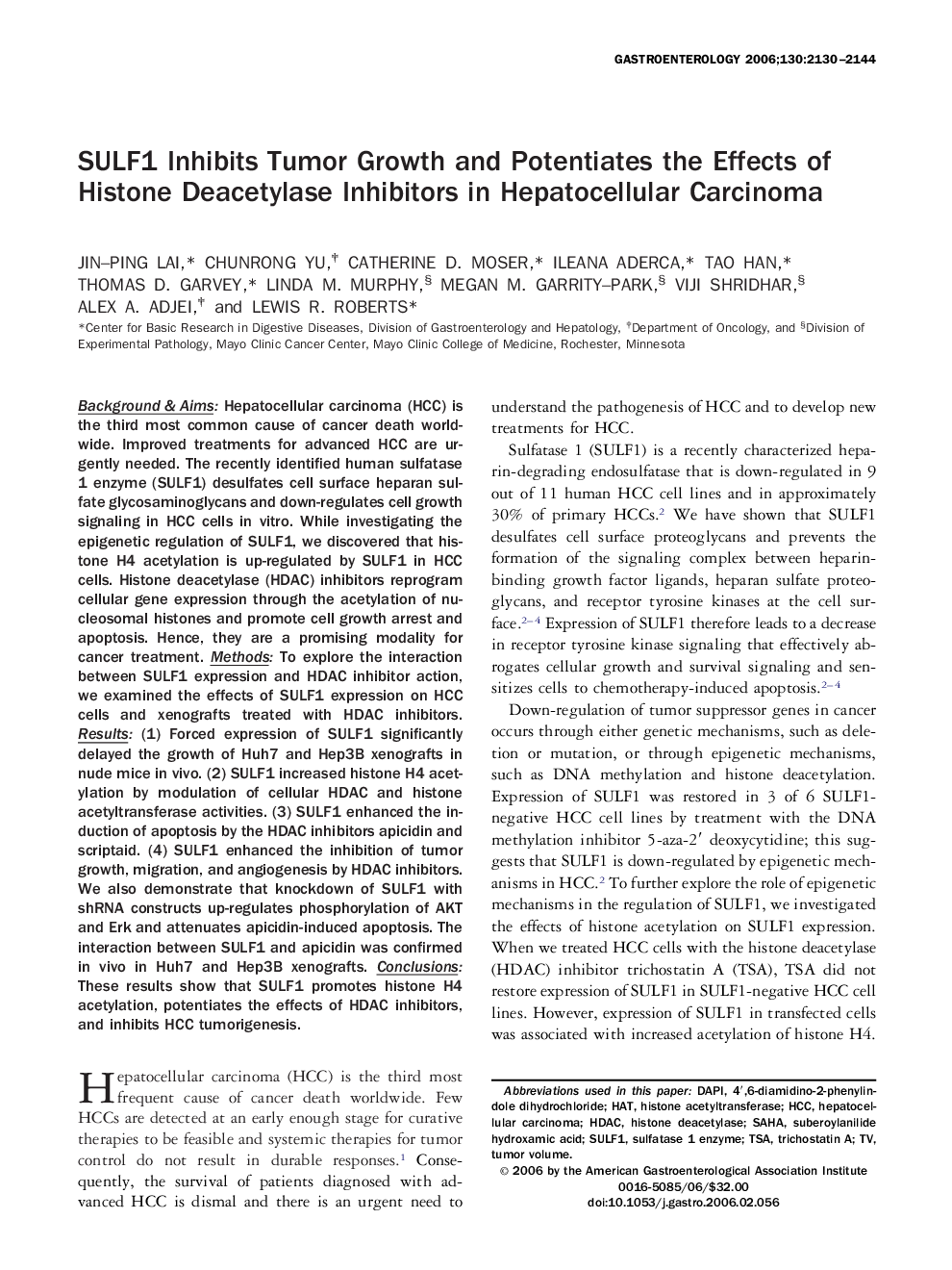| Article ID | Journal | Published Year | Pages | File Type |
|---|---|---|---|---|
| 3297553 | Gastroenterology | 2006 | 15 Pages |
Background & Aims: Hepatocellular carcinoma (HCC) is the third most common cause of cancer death worldwide. Improved treatments for advanced HCC are urgently needed. The recently identified human sulfatase 1 enzyme (SULF1) desulfates cell surface heparan sulfate glycosaminoglycans and down-regulates cell growth signaling in HCC cells in vitro. While investigating the epigenetic regulation of SULF1, we discovered that histone H4 acetylation is up-regulated by SULF1 in HCC cells. Histone deacetylase (HDAC) inhibitors reprogram cellular gene expression through the acetylation of nucleosomal histones and promote cell growth arrest and apoptosis. Hence, they are a promising modality for cancer treatment. Methods: To explore the interaction between SULF1 expression and HDAC inhibitor action, we examined the effects of SULF1 expression on HCC cells and xenografts treated with HDAC inhibitors. Results: (1) Forced expression of SULF1 significantly delayed the growth of Huh7 and Hep3B xenografts in nude mice in vivo. (2) SULF1 increased histone H4 acetylation by modulation of cellular HDAC and histone acetyltransferase activities. (3) SULF1 enhanced the induction of apoptosis by the HDAC inhibitors apicidin and scriptaid. (4) SULF1 enhanced the inhibition of tumor growth, migration, and angiogenesis by HDAC inhibitors. We also demonstrate that knockdown of SULF1 with shRNA constructs up-regulates phosphorylation of AKT and Erk and attenuates apicidin-induced apoptosis. The interaction between SULF1 and apicidin was confirmed in vivo in Huh7 and Hep3B xenografts. Conclusions: These results show that SULF1 promotes histone H4 acetylation, potentiates the effects of HDAC inhibitors, and inhibits HCC tumorigenesis.
